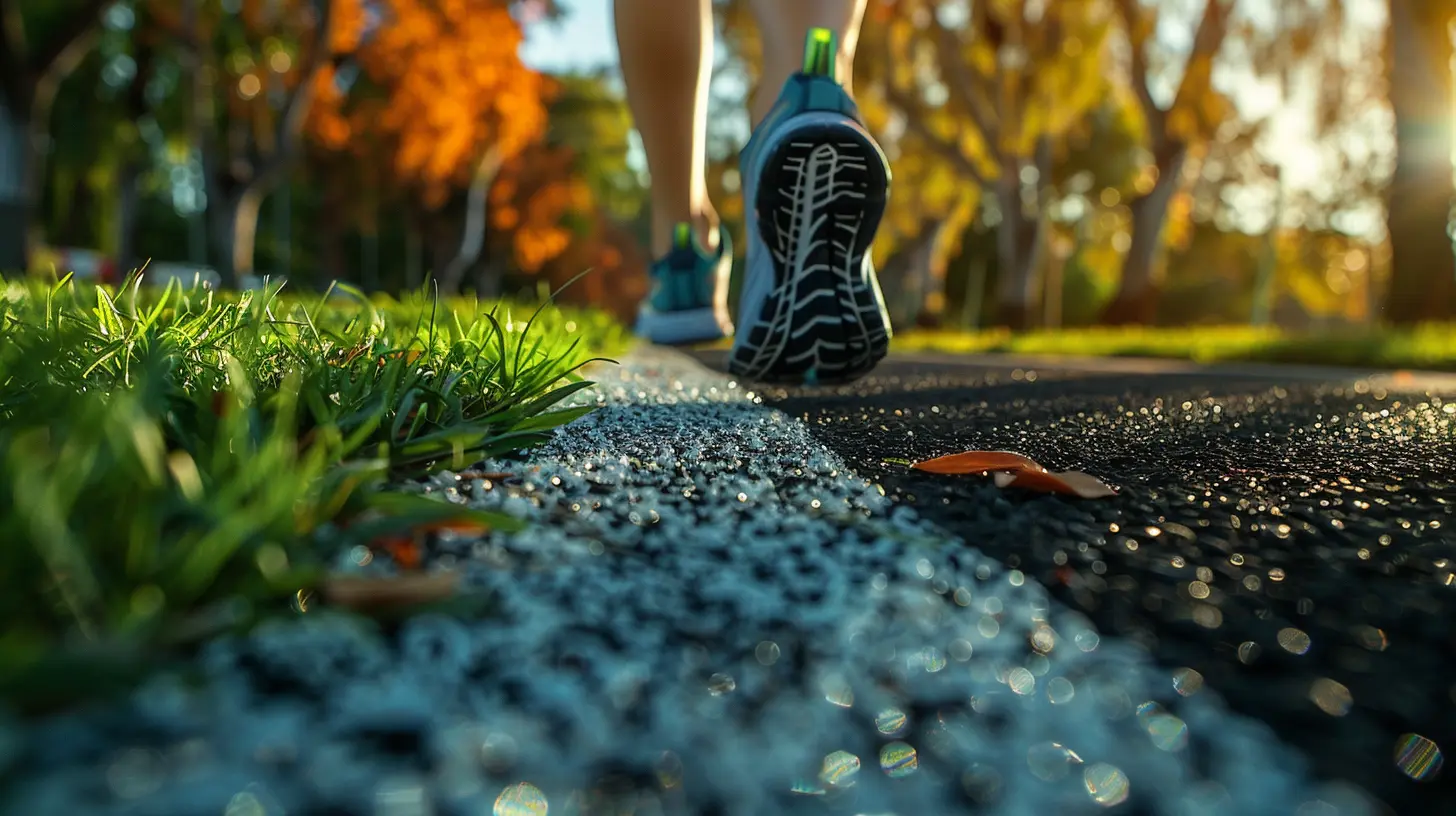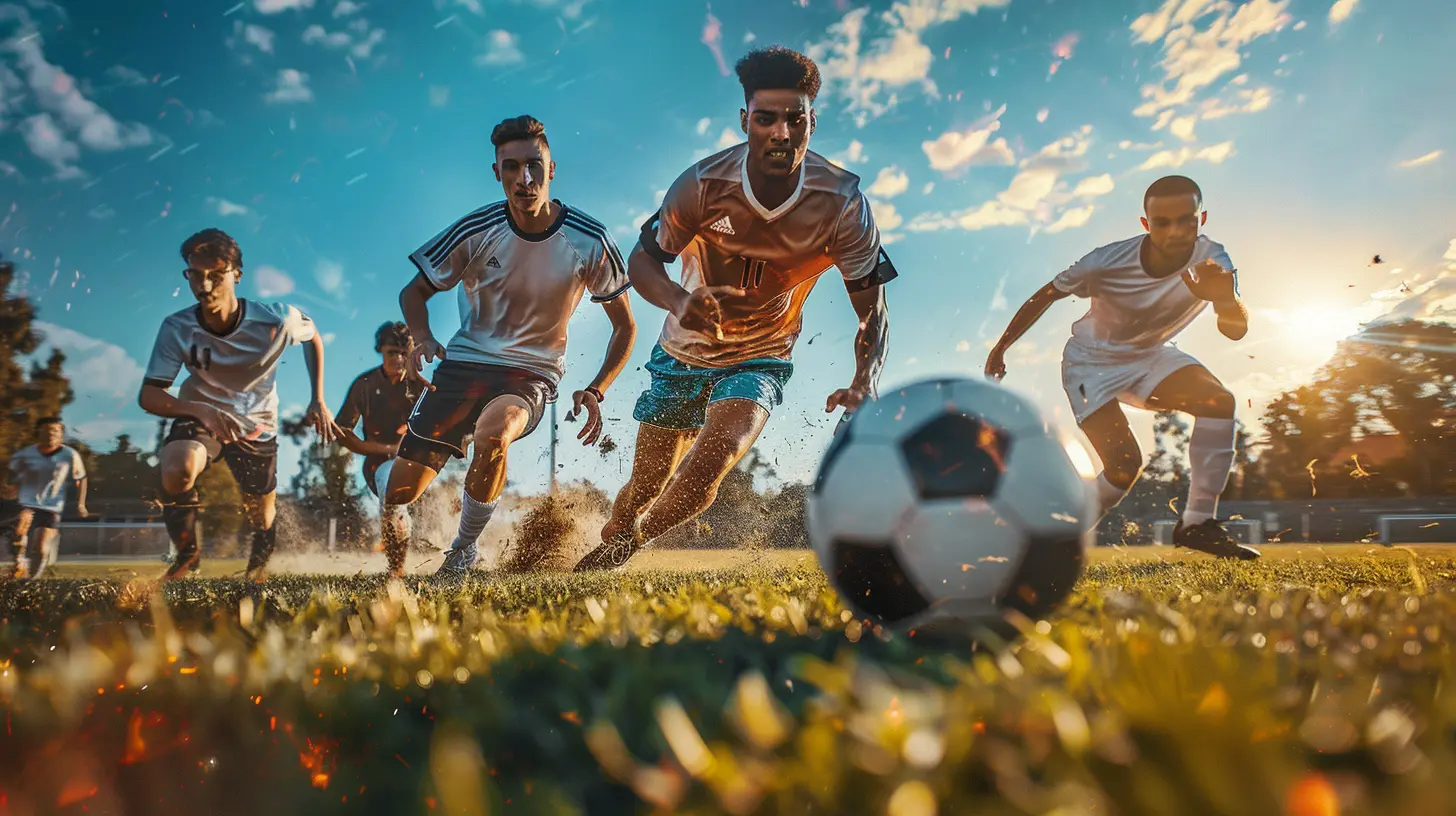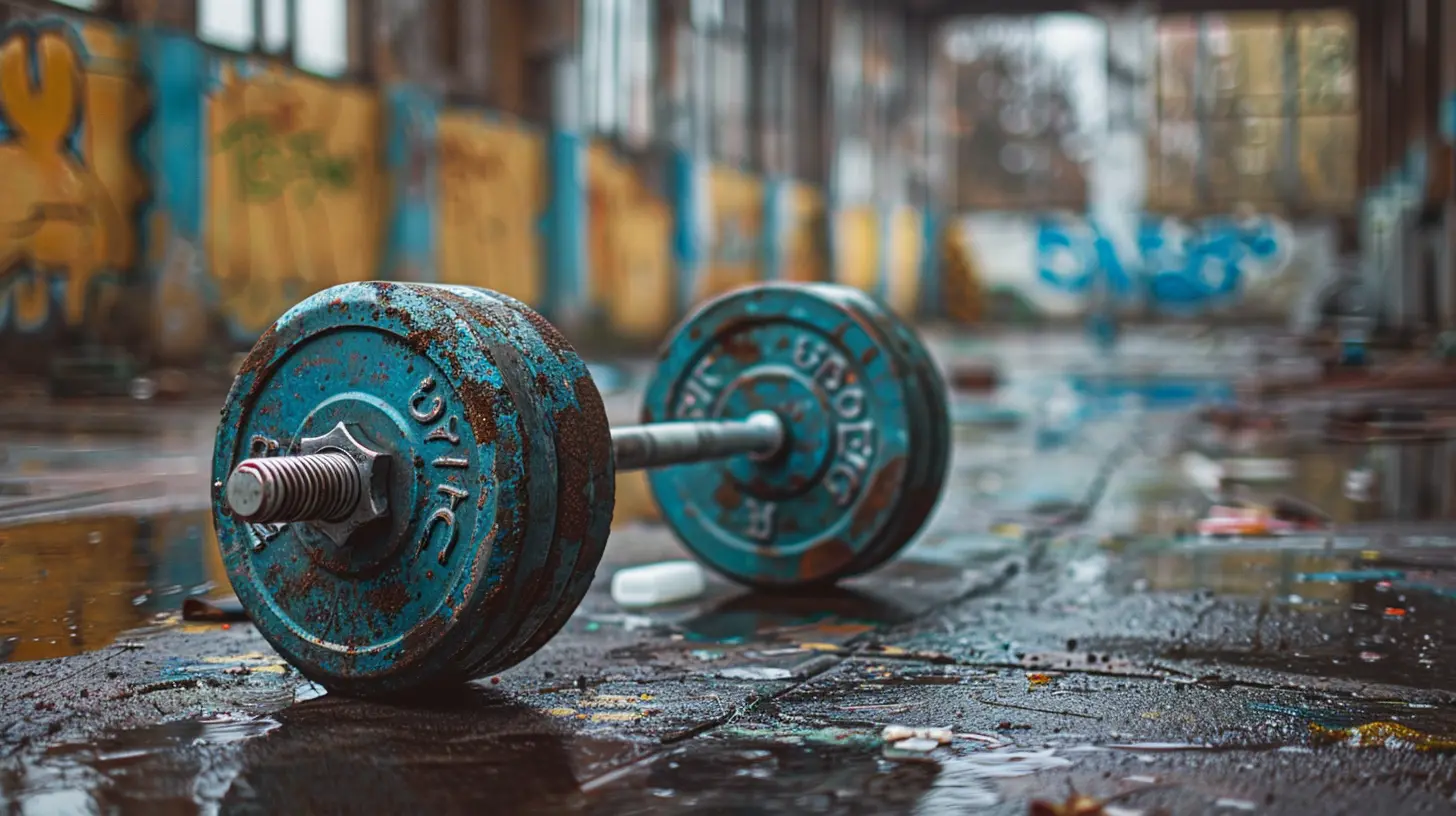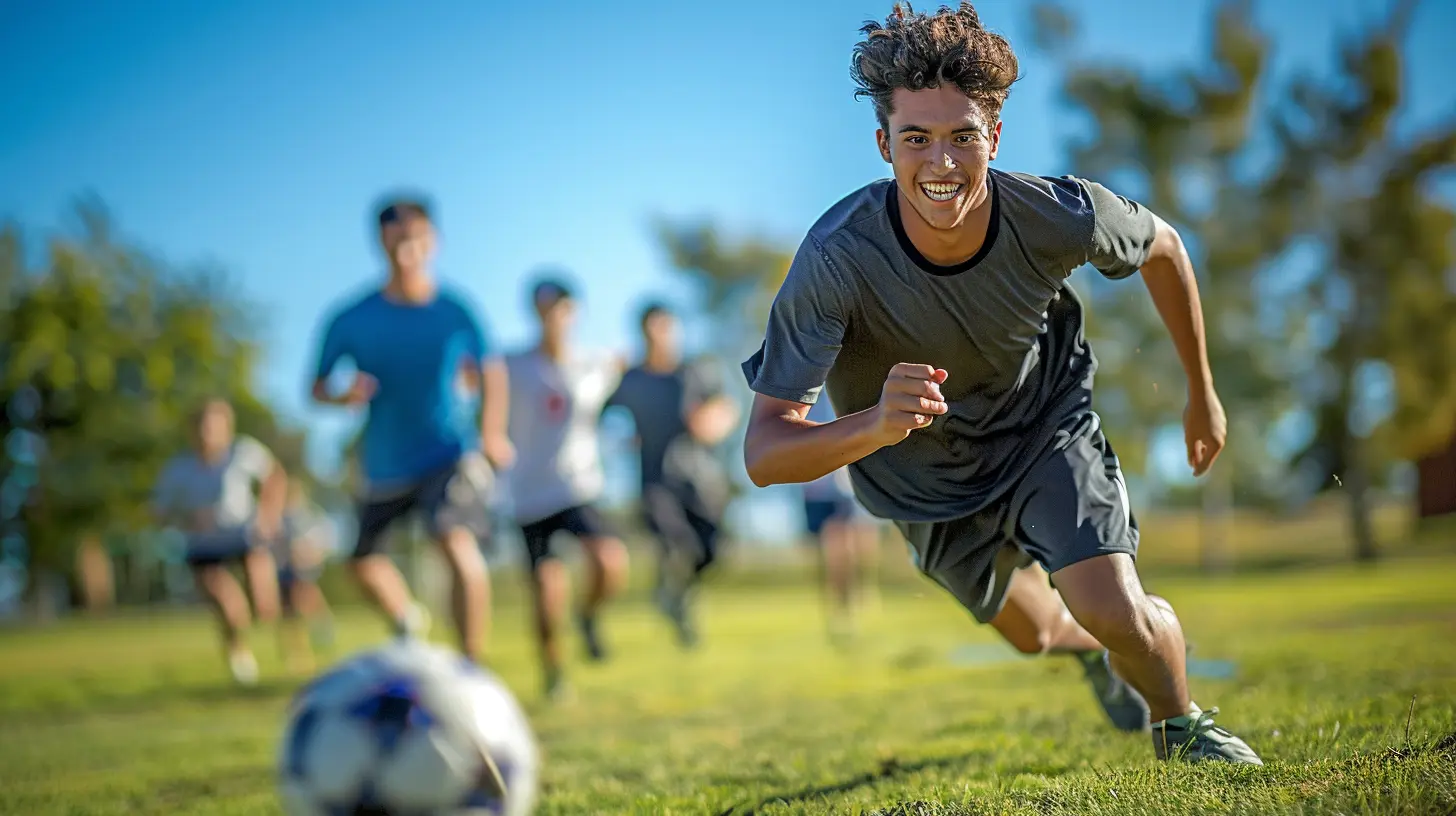Top Mistakes to Avoid in Amateur Sports Training
18 May 2025
Whether you're a weekend warrior, a high school athlete, or just someone looking to get into shape, amateur sports training can be an exciting journey. But let’s face it—no one starts out as an expert. Mistakes are a part of the process, and while some are harmless, others can slow your progress or even lead to injury. If you're serious about improving your performance and staying injury-free, recognizing these common pitfalls is crucial. So, let’s dive into the top mistakes to avoid in amateur sports training and how you can sidestep them.

1. Skipping the Warm-Up and Cool-Down
Let’s be honest—how many times have you skipped the warm-up because you were eager to get into the action? Or ditched the cool-down because you were just too tired? It happens to the best of us. But here’s the thing: skipping these steps is like trying to drive a car without letting the engine warm up. You might be able to go for a while, but eventually, things will break down.Warming up prepares your muscles and joints for the intensity of the workout, improving your range of motion and reducing the risk of injury. On the flip side, cooling down helps your body return to its normal state, reducing muscle soreness and speeding up recovery. So, don’t cut corners. A solid 10-15 minute warm-up and cool-down can make all the difference.
Pro Tip:
Include dynamic stretches in your warm-up to activate muscles, and use static stretching in your cool-down to maintain flexibility.
2. Neglecting Proper Form and Technique
You’ve probably heard the saying, "Practice makes perfect." But here’s the catch: if you're practicing with poor form, you’re only perfecting bad habits. Whether you're lifting weights or running sprints, focusing on proper technique is vital. Poor form can lead to muscle imbalances, joint stress, and, eventually, injury.For instance, in weight training, improper form can result in strains or tears, especially in the lower back or shoulders. Similarly, if you're running with poor posture or an inefficient stride, you're setting yourself up for shin splints, knee pain, or even hip injuries.
Pro Tip:
If you're unsure about your form, ask a coach or trainer for guidance. Even recording yourself and reviewing your movements can help you identify areas where you're going wrong.
3. Overtraining Without Enough Rest
We get it—when you’re passionate about improving, it’s tempting to train hard every single day. But here’s the bad news: overtraining can actually set you back. Your muscles grow and recover during rest, not during the workout itself. Overtraining can lead to fatigue, burnout, and even injuries like stress fractures or tendonitis. It’s like running on a treadmill that’s too fast—you’ll eventually trip and fall.Rest days allow your body to recover and repair itself, which is essential for progress. Without adequate rest, you're more likely to experience physical and mental burnout.
Pro Tip:
Aim for at least one or two rest days per week. Incorporate active recovery such as light walking or stretching to keep your body moving while still allowing time for recovery.
4. Ignoring Nutrition and Hydration
Amateur athletes often focus solely on the physical aspect of training, forgetting that what you put into your body is just as important as how you move it. Training without proper nutrition and hydration is like trying to fuel a race car with cheap gas—it’s not going to end well.Your body needs the right mix of proteins, carbohydrates, fats, vitamins, and minerals to perform at its best. Skipping meals or not eating the right foods can result in low energy levels, poor performance, and even muscle loss. And don’t forget hydration! Dehydration can lead to cramping, fatigue, and impaired focus, all of which can derail your training session.
Pro Tip:
Make sure to hydrate before, during, and after your workouts. Aim to eat a balanced meal with a good mix of macronutrients about 1-2 hours before training, and refuel after your session with a protein-rich snack.5. Setting Unrealistic Goals
We’ve all been there—setting sky-high goals and feeling frustrated when we don’t achieve them right away. It’s easy to get caught up in the excitement and aim for drastic improvements, but setting unrealistic goals can lead to disappointment, burnout, and even injury.For example, if you’ve just started running, aiming to complete a marathon in a few months might be too much too soon. Instead, focus on incremental improvements. Progress takes time, and setting realistic, achievable goals will keep you motivated and on track. Remember: Rome wasn’t built in a day, and neither is an athlete!
Pro Tip:
Break your big goals into smaller, more manageable milestones. Celebrate those little victories—they’ll keep you motivated along the way.
6. Not Listening to Your Body
Your body is constantly giving you feedback, but are you listening? One of the biggest mistakes amateur athletes make is pushing through pain or ignoring signs of overexertion. There’s a difference between the normal discomfort of pushing your limits and the sharp, nagging pain that signals injury.If something doesn’t feel right, stop and assess the situation. Ignoring these warning signs can lead to more severe injuries and longer recovery times. Remember, pain is your body’s way of telling you that something is wrong.
Pro Tip:
If you feel pain that’s more than just muscle soreness, take a break and consult a medical professional if necessary. It’s better to miss a few workouts than to be sidelined for months.7. Focusing Solely on Strength or Cardio
Many amateur athletes fall into the trap of focusing solely on one aspect of fitness, either strength training or cardio, while neglecting the other. While specializing can be effective for certain sports, a well-rounded approach is essential for overall athletic performance.Cardio improves endurance, while strength training builds muscle and prevents injury. Ignoring one in favor of the other can create imbalances in your body and limit your overall potential. For example, runners who avoid strength training may have weak muscles that are prone to injury, while weightlifters who skip cardio might struggle with stamina.
Pro Tip:
Incorporate both strength training and cardiovascular exercises into your routine. Even if your primary focus is on one area, balancing both will improve your overall fitness and prevent imbalances.
8. Training Without a Plan
Going into your workouts without a clear plan is like trying to bake a cake without a recipe. You’ll end up with a mess, or worse, you won’t see the results you’re hoping for. Many amateur athletes make the mistake of training randomly, without any specific goals or structure. This can lead to plateaus, frustration, and even injury from overworking certain muscles while neglecting others.A proper training plan should be balanced and include a mix of cardio, strength, flexibility, and rest days. It should also evolve as you progress. Training the same way over and over again without increasing intensity or changing exercises can lead to stagnation.
Pro Tip:
Work with a coach, or do your own research to create a structured training plan. Keep track of your progress and adjust your plan as needed to continue improving.9. Comparing Yourself to Others
In the age of social media, it’s easy to fall into the trap of comparing yourself to others. Whether it’s Instagram influencers, fellow athletes, or even friends, comparing yourself can lead to frustration and disappointment. Everyone’s fitness journey is different, and what works for one person may not work for you.Remember, you’re competing against yourself, not anyone else. Focus on your own progress, and don’t let someone else’s achievements diminish your own. Your journey is unique, and your progress will come with time and consistency.
Pro Tip:
Celebrate your own successes, no matter how small they may seem. Avoid the comparison game and focus on your individual goals.
10. Neglecting Mental Training
When it comes to sports, mental toughness is just as important as physical fitness. Many amateur athletes overlook the mental aspect of training, focusing solely on the physical side. However, developing a strong mindset can help you push through tough workouts, stay motivated, and bounce back from setbacks.Visualization, goal-setting, and mindfulness are all important tools that can enhance your mental game. By training your mind, you can improve your focus, reduce performance anxiety, and maintain a positive attitude, even when the going gets tough.
Pro Tip:
Incorporate mental training into your routine by practicing visualization or mindfulness techniques. Set aside time to reflect on your goals and how far you’ve come.Conclusion
Amateur sports training is full of potential pitfalls, but by recognizing and avoiding these common mistakes, you can set yourself up for success. Remember, the key to progress is consistency, balance, and listening to your body. Stay patient, focus on your goals, and most importantly—enjoy the journey. After all, sports should be fun, right?all images in this post were generated using AI tools
Category:
Amateur SportsAuthor:

Easton Simmons
Discussion
rate this article
3 comments
Viva McGrath
“Skip the drama and ditch the excuses! Train smart, stay focused, and remember: greatness doesn’t come from half-hearted efforts!”
June 6, 2025 at 3:59 AM

Easton Simmons
Absolutely! Commitment and smart training are key to achieving your best in sports. Stay focused and give your all!
Anika McGarvey
Great insights! Avoiding these mistakes can significantly enhance training effectiveness for amateur athletes.
May 24, 2025 at 2:34 AM

Easton Simmons
Thank you! I'm glad you found it helpful. Avoiding these pitfalls can indeed make a big difference for athletes!
Bella Thomas
Prioritize consistency and recovery to enhance performance.
May 19, 2025 at 3:24 AM

Easton Simmons
Absolutely! Consistency in training and allowing for proper recovery are key to improving performance and avoiding burnout. Thanks for the insight!



